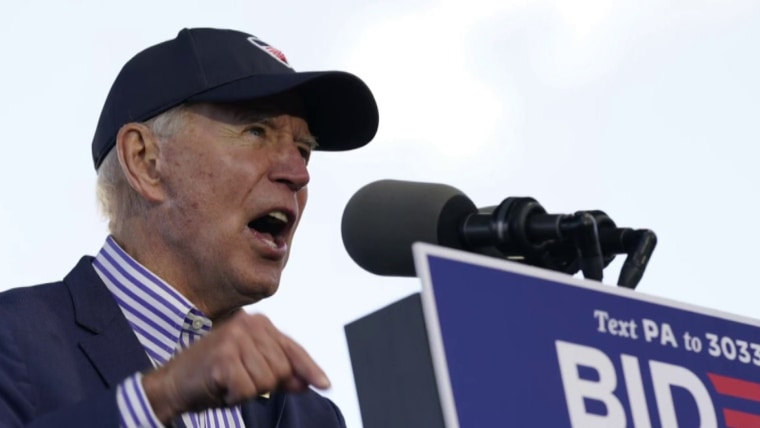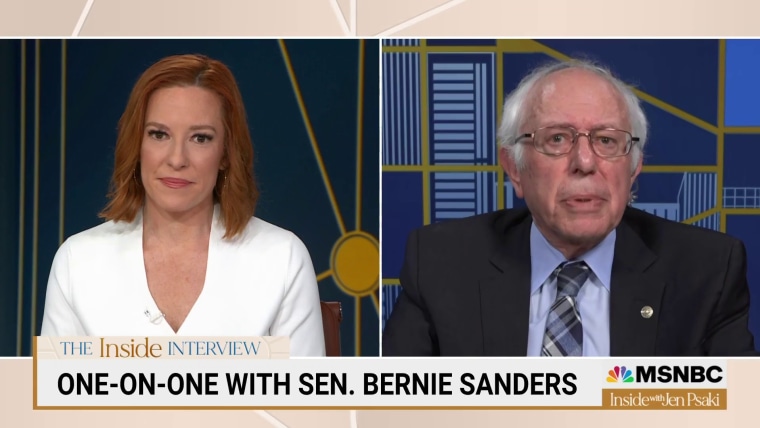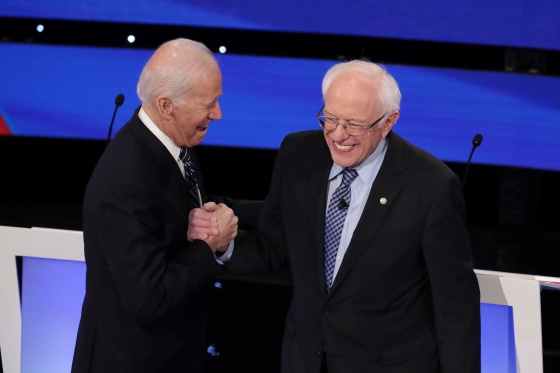In 2011, Sen. Bernie Sanders, I-Vt., seriously considered a primary challenge against then-President Barack Obama for the 2012 election. After Obama’s campaign team got wind of Sanders’ intentions and reportedly began to panic, then-Senate Majority Leader Harry Reid had to talk to Sanders twice to persuade him to call off the challenge.
A little over a decade later, another establishment-Democrat president — once the vice president of the man Sanders wanted to take on — is seeking re-election. But this time the socialist firebrand is eagerly siding with the president instead of daring to primary him.
The senator’s decision reflects a broader truth: how Biden has neutralized the left wing of the Democratic Party.
“The last thing this country needs is a Donald Trump or some other right-wing demagogue who is going to try to undermine American democracy or take away a woman’s right to choose, or not address the crisis of gun violence, or racism, sexism or homophobia,” Sanders told The Associated Press on Tuesday, after Biden announced he was running for re-election. “So, I’m in to do what I can to make sure that the president is reelected.”
It would be easy to ascribe Sanders’ decision to individual factors, such as avoiding another stressful primary after suffering a heart attack during the last campaign. But the senator’s decision reflects a broader truth: how Biden has neutralized the left wing of the Democratic Party.
One factor in that neutralization, including Sanders’ acquiescence, is that the establishment changed. Biden has governed further to the left than anyone expected, particularly on economic policy. Biden developed a close rapport with Sanders and made what appeared to be a substantial effort to get his input on policy ideas through a unity task force in 2020. The president surprised progressives with his positions on social spending, climate policy, manufacturing and labor. From this perspective, Biden has mollified the left wing of the party by building some trust and taking up some of its causes.

But the second way to read Sanders’ swift endorsement is as a sign of the left’s weakness. Were the left wing of the Democratic Party bigger, better organized and more adversarial, there might be more appetite for a primary challenge — maybe not from Sanders himself, but from some kind of democratic socialist. But the reality is that while Sanders’ insurgency in 2016 and 2020 shook up the party, the segment of the Democratic Party that’s to the left of Biden — and willing to generate friction over those commitments — remains very small and is still finding its footing. The leftist bloc of Congress is one senator and a handful of representatives in the House known as "the squad." Moreover, they’re gentle gadflies when it comes to passing legislation: Given the slim margin of the Democratic majorities during the first two years of the Biden administration, they had enough numbers to cause chaos for Biden, but mostly chose not to.
What’s striking is that Sanders not only endorsed Biden, but seemed cool on the prospect of other challengers taking him on. “People will do what they want to do,” Sanders said of other potential primary challenges, according to The Associated Press. “I think Joe Biden will be the Democratic nominee. And my job, and I think the progressive movement’s job, is to make certain that he stands up and fights for the working class of this country and does not take anything for granted.”
Some on the left have expressed disappointment that Sanders endorsed Biden the day of his announcement. Sanders’ former press secretary Briahna Joy Gray, for example, argued that Sanders had the chance to withhold endorsement in exchange for a new set of policy promises. I agree that’s a missed opportunity; Biden could be pressured on plenty of progressive priorities: "Medicare for All," abolishing the filibuster, backing labor unions more effectively, progressive immigration policy, stronger climate policies.
But beyond that, the problem seems more structural than a case of Sanders selling out. Sanders theoretically could have encouraged other challengers without running himself. That’s probably a healthy, democratic practice. On a strategic level, though, it’s hard to see who would be able to execute the job. Presidential candidates who have any chance of drawing formidable support have significant experience in high-level political office, genuine celebrity, or exceptional charisma. But socialist candidates and their allies are only a couple election cycles into national politics and don’t occupy any major positions. Some might counter that Rep. Alexandria Ocasio-Cortez, D-N.Y., might still be relatively new to politics but ticks the celebrity and charisma boxes. But just four years into her political career, there’s no clear payoff for her taking such a risk, and for now she seems inclined to stay on party leadership’s good side.

Sanders is the most viable candidate, and at this point he’s accurately assessed that he has no chance after two impressive but failed attempts. He has built up a rapport and trust with Biden; he likely believes that staying on the inside and keeping an open line to the White House is his best bet at influencing Biden’s agenda for the rest of his presidency. An almost-certainly-doomed third run would not only sour his relationship with an establishment that’s taking him seriously, but could weaken the party as it faces off against an existential threat to democracy: a second term for Donald Trump.
Socialist inroads into mainstream American political life are still very, very early in a power-building phase. If a left-wing president ever wants to have any chance of passing an iota of their agenda, it will require the party to be much more progressive overall. While presidential contests are high-profile opportunities for activism, the focus for the left now is better spent on organizing around left-wing policies and candidates on the local and state levels, and challenging members of Congress from the left wherever possible. It’s not as attractive a fantasy as seizing the White House in a surprise insurgency, but it’s the reality of politics. This is a long slog, and it’s just getting started.

